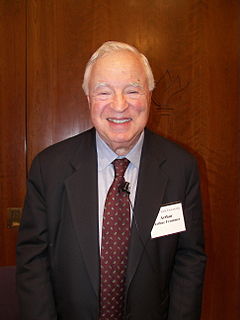Christian usually refers to:

A stage name is a pseudonym used by performers and entertainers, such as actors, comedians, singers and musicians. Such titles are adopted for a wide variety of reasons and may be similar or nearly identical to an individual's birth name. In some situations, a performer will eventually adopt his or her title as a legal name, although this is often not the case. Personal names or nicknames that make up the professional name should not necessarily be considered as a "fake name" like Lady Gaga : for example: Miley Cyrus: born Destiny Hope Cyrus, uses her personal nickname "Miley" and her maiden name "Cyrus" as her professional name, in 2018 she legally changed to Miley Ray Hemsworth.
A surname, family name, or last name is the portion of a personal name that indicates a person's family. Depending on the culture, all members of a family unit may have identical surnames or there may be variations based on the cultural rules.
Thai or THAI may refer to:

Clark is an English language surname, ultimately derived from the Latin clericus meaning "scribe", "secretary" or a scholar within a religious order, referring to someone who was educated. Clark evolved from "clerk". First records of the name are found in 12th-century England. The name has many variants.

A given name is a part of a person's personal name. It identifies a person, and differentiates that person from the other members of a group who have a common surname. The term given name refers to the fact that the name usually is bestowed upon a person, normally to a child by their parents at or close to the time of birth. A Christian name, a first name which historically was given at baptism, is now also typically given by the parents at birth.

Cheung/Zhang is the pinyin/jyutping romanization of the very common Chinese surname written 张 in simplified characters and 張 in traditional characters. It is spoken in the first tone: Zhāng. It is a surname that exists in many languages and cultures, corresponding to the surname 'Archer' in English for example. Chang is the Wade-Giles romanization; Cheung is commonly used in Hong Kong as romanization.

Chen is one of the most common East Asian surnames of Chinese origin. It ranks as the 5th most common surname in China as of 2007 and the most common surname in Singapore (2000) and Taiwan (2010). Chen is also the most common family name in Guangdong, Zhejiang, Fujian, Hong Kong. It is the most common surname in Xiamen, the ancestral hometown of many overseas Hoklo. Besides 陳/陈, an uncommon Chinese surname 諶/谌 (Shen) sometimes is romanized as Chen because of mispronunciation.).
Spanish naming customs are historical traditions for naming children practised in Spain. According to these customs, a person's name consists of a given name followed by two family names (surnames). The first surname is usually the father's first surname, and the second the mother's first surname. In recent years, the order of the surnames can be decided at birth. Often, the practice is to use one given name and the first surname only, with the full name being used in legal, formal, and documentary matters, or for disambiguation when the first surname is very common. In these cases, it is common to use only the second surname, as in “Lorca”, "Picasso" or “Zapatero”. This does not affect alphabetization: discussions of "Lorca", the Spanish poet, must be alphabetized in an index under “García Lorca", never "Lorca".
Neil is a masculine given name of Gaelic origin. The name is an Anglicisation of the Irish Niall which is of disputed derivation. The Irish name may be derived from words meaning "cloud", "passionate", or "champion". As a surname, Neil is traced back to Niall of the Nine Hostages who was an Irish king and eponymous ancestor of the Uí Néill and MacNeil kindred. Most authorities cite the meaning of Neil in the context of a surname as meaning champion.

Wu is the pinyin transliteration of the Chinese surname 吳, 吴, which is the tenth most common surname in Mainland China. Wu (吳) is the sixth name listed in the Song Dynasty classic Hundred Family Surnames.
In the Philippines, varying naming customs are observed, whether it is given name first, family name last, a mixture of native conventions with those of neighbouring territories, etc. The most common iteration amongst Filipinos is a blend of the older Spanish system and Anglo-American conventions, where there is a distinction between the "Christian name" from "surname". The construct of having several names in the middle name convention is common to all systems, but to have multiple "first" names and only one middle and last name is a result of the blending of American and Spanish naming customs. The Tagalog language is one of the few national languages in Asia to use the Western name order while formally uses the eastern name order. Thus, the Philippine naming custom is coincidentally identical to the Spanish and Portuguese name customs and to an extent Chinese naming customs.
Quinn is an Anglicised form of the Irish Ó Coinn. The latter surname means "descendant of Conn". The surname Quinn is also rendered Ó Cuinn in Irish. The surname is borne by numerous unrelated Irish families in Ulster and the Irish counties of Clare, Longford, and Mayo. The most notable family of the name are that of Thomond, a Dalcassian sept, who derive their surname from Niall Ó Cuinn who was slain at the Battle of Clontarf in 1014. This family was formerly represented by the Earls of Dunraven. Another family is that seated in Annaly, who were related to the O'Farrell lords of Longford. Other families include one seated in Antrim; one seated in Raphoe; and one called Clann Cuain, seated near Castlebar. In the seventeenth century, the surname Quinn was common in Waterford. In 1890, the surname was numerous in Dublin, Tyrone, Antrim, and Roscommon. Quinn is one of the twenty most common surnames in Ireland. It is sometimes said that the surname Quinn is borne by Catholics whilst Quin is borne by Protestants.
Brian is a male given name of Irish and Breton origin, as well as a surname of Occitan origin. It is common in the English-speaking world. It is possible that the name is derived from an Old Celtic word meaning "high" or "noble". For example, the element bre means "hill"; which could be transferred to mean "eminence" or "exalted one". The name is quite popular in Ireland, on account of Brian Boru, a 10th-century High King of Ireland. The name was also quite popular in East Anglia during the Middle Ages. This is because the name was introduced to England by Bretons following the Norman Conquest. Bretons also settled in Ireland along with the Normans in the 12th century, and 'their' name was mingled with the 'Irish' version. Also, in the north-west of England, the 'Irish' name was introduced by Scandinavian settlers from Ireland. Within the Gaelic speaking areas of Scotland, the name was at first only used by professional families of Irish origin. It was the fourth most popular male name in England and Wales in 1934, but a sharp decline followed over the remainder of the 20th century and by 1994 it had fallen out of the top 100. It retained its popularity in the United States for longer; its most popular period there was from 1968–1979 when it consistently ranked between eighth and tenth. The name has become increasingly popular in South America - particularly Argentina and Uruguay since the early 1990s.

Hayes is an English language surname. In the United States Census, 1990, Hayes was the 100th most common surname recorded. The oldest record of the surname dates to 1197 in the Eynsham Cartulary of Oxfordshire, where it appears on the form Heise. There are nineteen coats of arms assumed by or granted to individuals with this or a similar surname. Though primarily a surname, "Hayes" sometimes appears as a given name in census records.
Tyler is an English name derived from the Old French tieuleor, tieulier and the Middle English tyler, tylere. The name was originally an occupational name for one who makes or lays tiles. It is used both as a surname, and as given name for both sexes. Among the earliest recorded uses of the surname is from the 14th century: Wat Tyler of Kent, South East England.

Martin may either be a surname or given name. Martin is a common given and family name in many languages and cultures. It comes from the Latin name Martinus, which is a late derived form of the name of the Roman god Mars, the protective godhead of the Latins, and therefore the god of war. The meaning is usually rendered in reference to the god as "of Mars", or "of war/warlike" ("martial").
Trump is a surname of English and German origin:









